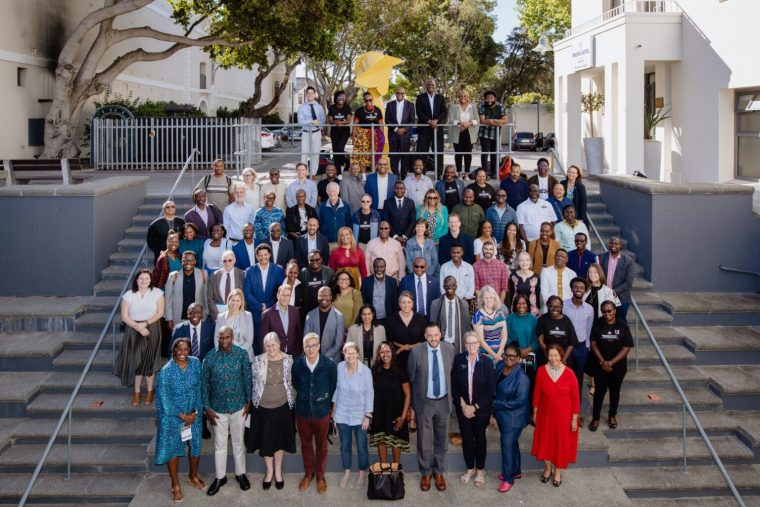By Kennedy Owino Ojowi (Mastercard Foundation Scholar at the University of Toronto)
In today’s rapidly evolving healthcare landscape, the intersection of clinical expertise and technological innovation is where the most significant impacts are made. My journey from nursing to health informatics is a testament to this shift—a journey that began with hands-on patient care and led me to the forefront of digital health solutions.
This transition wasn’t just a career change; it was a response to the growing realization that technology could amplify my ability to improve patient outcomes on a much larger scale.
Born and raised in the heart of Africa, where the rhythm of life is shaped by hard work and resilience, my journey from nursing to health informatics began with values instilled by my parents. My father, a retired veterinary doctor, and my mother, who took on various menial jobs, deeply believed in the transformative power of education. With their encouragement, I set out on a path in healthcare, aiming to make a meaningful impact. However, my journey would soon take me beyond the traditional roles of nursing into the innovative world of health informatics.
Navigating Early Career Challenges
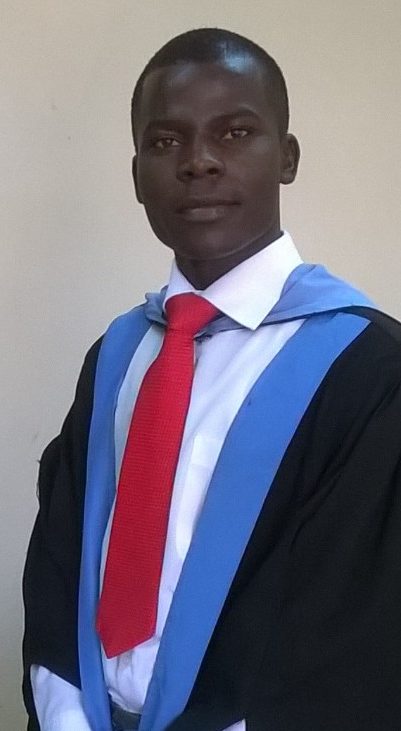
After earning my Bachelor of Science in Nursing from Moi University in 2016, I quickly confronted the realities of a competitive job market. My first nursing position was at a private hospital in a remote Kenyan town—a role that was both challenging and enlightening.
Each subsequent role, whether in public or private hospitals, became more than just a job; it was a learning experience that exposed me to diverse clinical cases and allowed me to take on leadership responsibilities. These experiences sharpened my skills and deepened my commitment to patient care, laying the foundation for my future endeavors.
Introduction to Digital Health
In the early stages of my career, my exposure to health information systems was limited to insurance reimbursement processes. However, my true introduction to the digital health landscape came when I joined an international NGO. Here, I encountered a cloud-based electronic medical records (EMR) system for the first time. As I became proficient in its use, my responsibilities expanded to include supporting fellow nurses during system implementations. This experience sparked a profound interest in the intersection of healthcare and technology, revealing a new avenue for making a broader impact on patient outcomes.
Understanding Health Informatics and Its Career Potential
Health informatics is where healthcare meets technology and data management, focusing on how health information is captured, transmitted, and used to improve patient care and system efficiency. Professionals in this field are involved in tasks like developing electronic health records (EHRs), data analytics, and telemedicine. As healthcare continues to digitize, the demand for skilled professionals who can bridge clinical practice and technology is rapidly growing. For those with a clinical background, health informatics offers a unique opportunity to leverage medical knowledge while driving innovation in healthcare.
A Pivotal Moment During the COVID-19 Pandemic
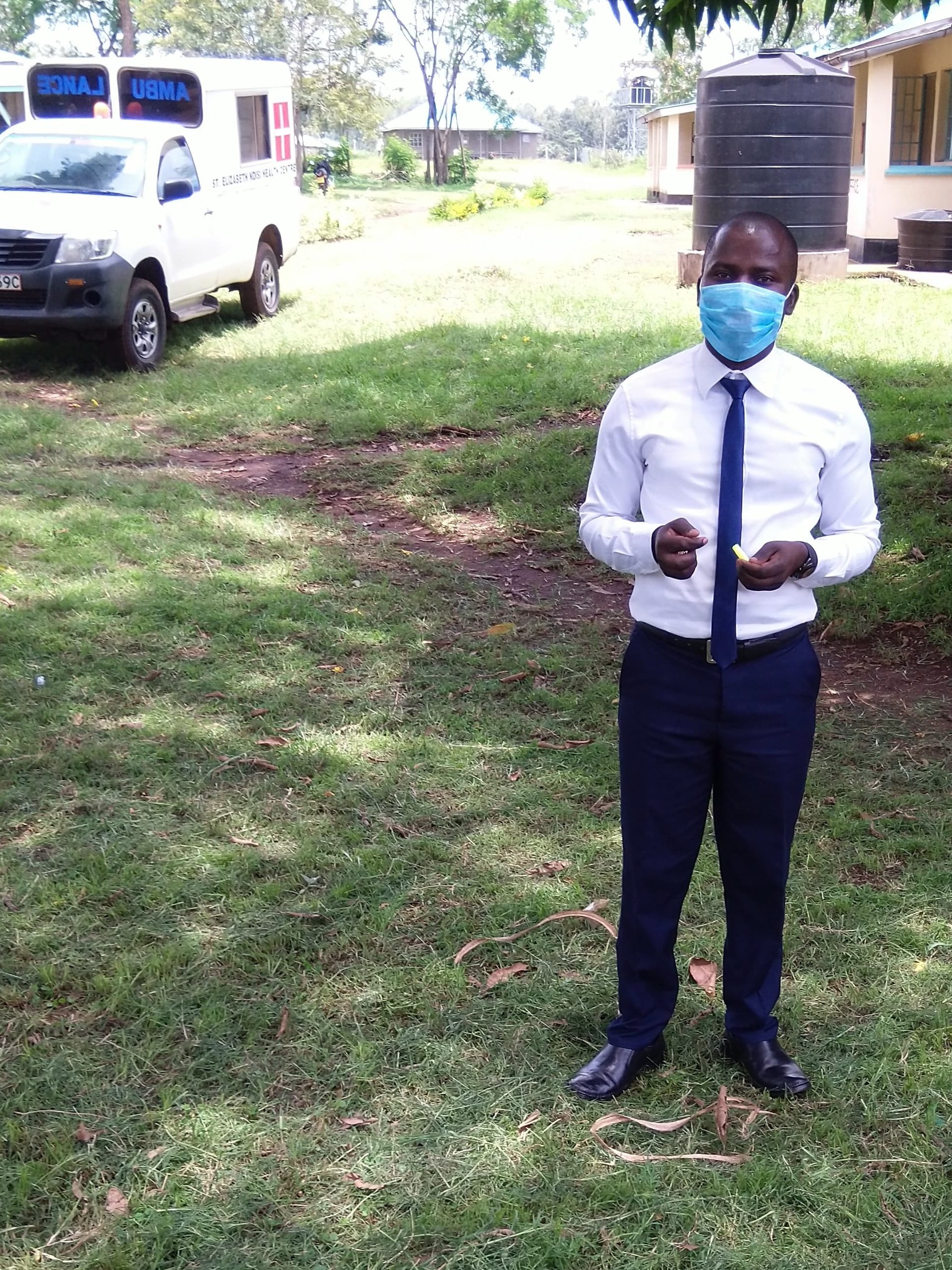
The COVID-19 pandemic was a turning point in my career. The NGO I was working with launched a project that leveraged cloud-based EMR systems to enhance the pandemic response.
This project allowed me to engage with various stakeholders, build capacity, and support healthcare providers on the front lines. It was during this time that I realized the profound impact technology could have on healthcare—far beyond what I could achieve at the bedside. This epiphany set me on a path to explore fields that married my clinical expertise with my growing passion for technology, ultimately leading me to health informatics. Around this time, I learned about the Mastercard Foundation’s scholarships for health-related master’s programs at the University of Toronto.
With a newfound clarity of purpose, I applied for the Master of Health Informatics program. After a rigorous selection process, I was awarded a full scholarship to pursue this dream, marking the beginning of a life-changing journey. Since joining the University of Toronto in 2023, my experience has been nothing short of transformative. The rigorous academic environment has equipped me with essential skills in data management, health system development, and project management. The scholarship not only alleviated financial pressures but also provided invaluable opportunities, such as a practicum placement at Palladium, a global leader in addressing the world’s most pressing challenges.
Practicum at Palladium: Gaining Practical Insights
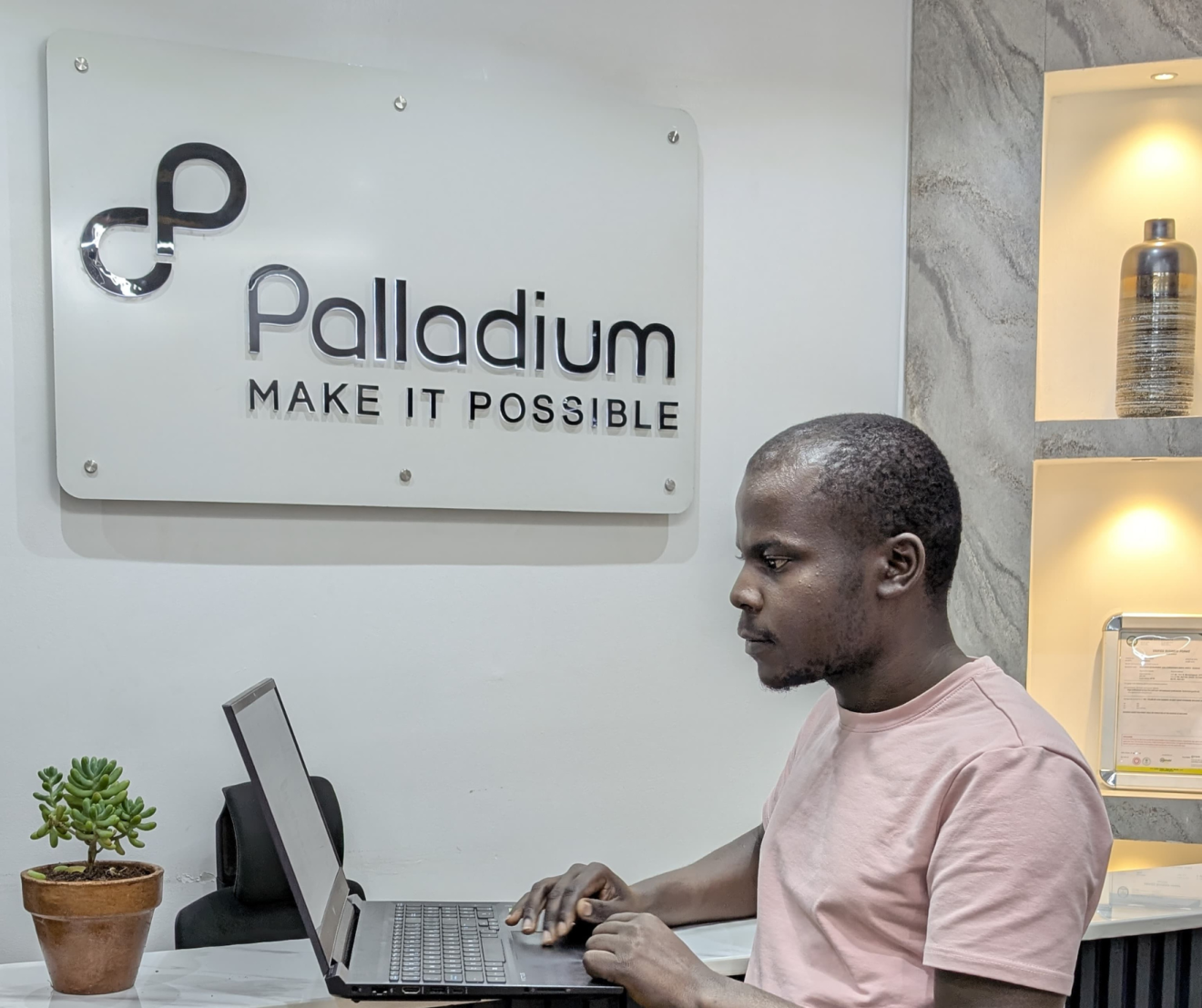
During my practicum at Palladium, from May to August 2024, I worked closely with the data and analytics team, analyzing and visualizing health and non-health data using cutting-edge tools. This experience broadened my understanding of health system development, encompassing business analysis, UI/UX design, software development, and project management. I am now well-prepared to contribute to the design and implementation of digital health solutions, stakeholder engagement, and data visualization—skills that are increasingly vital in today’s healthcare landscape.
Reflections and Future Aspirations
Looking back, the transition from nursing to health informatics has been anything but straightforward. However, it has been profoundly rewarding. The combination of clinical experience, education, and practical insights has uniquely positioned me to make a significant impact in this evolving field. My goal is to leverage this blend of skills to enhance healthcare delivery and outcomes across Africa and beyond. This journey has taught me that embracing change, while challenging, can lead to remarkable growth and new opportunities. For those considering a similar path, I encourage you to pursue continuous learning, seek out mentorship, and remain resilient in the face of obstacles. The future of healthcare lies at the intersection of clinical expertise and technological innovation, and I am excited to contribute to this exciting frontier.
More News & Events
Skip scroller content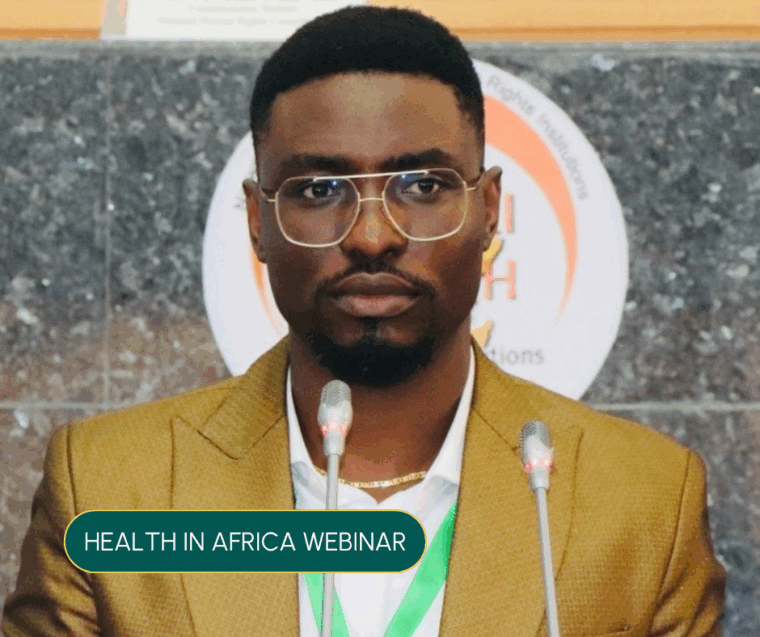
Building Inclusive Health Systems for People in Contact with the Criminal Justice System in Africa
Join this webinar to explore how Africa can build inclusive health systems that protect the dignity, safety, and well‑being of people who come into contact with the criminal justice system.
Dignity, Data, and Disruption in Africa’s Health Systems: A Young Leader’s Reflection
John Nyagaka, a Mastercard Foundation Scholar and AHC Young Leaders Table Chair, reflects on his transformative experience at the 2025 Annual Convening.
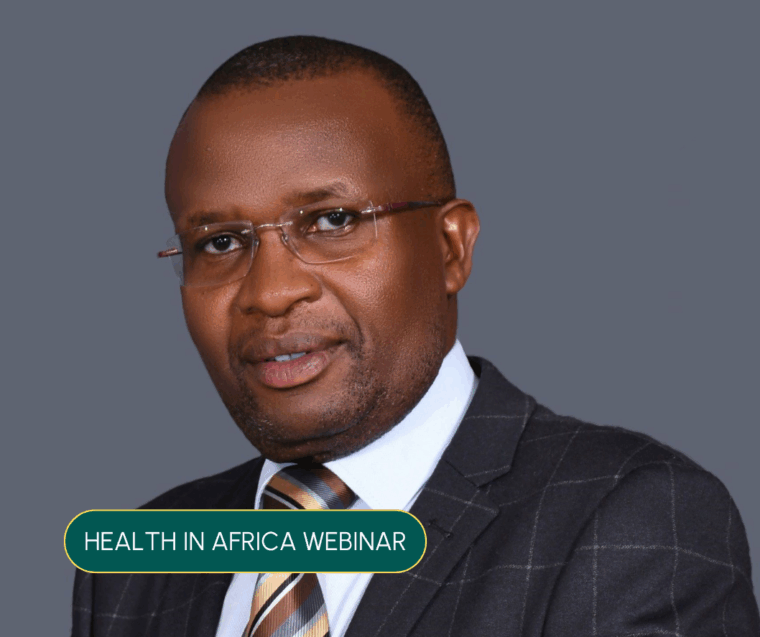
What Works: Improving Maternal and Newborn Health in Kenya and Ethiopia
Join this webinar to explore how community-led systems and digital innovations, in partnership with local leaders, are scaling sustainable healthcare impact and delivering life-saving care for mothers and their newborns.

Apply for the AIMS Master’s in Mathematical Epidemiology (MathEpi) Scholarship
Apply for the 2025 AIMS MathEpi Master’s program. Fully funded scholarships for African students in statistics and public health. Deadline: March 15.

Apply for KNUST’s CPD-Eligible Short Courses in Health Systems and Services Management
Applicants must meet the following requirements to qualify for the scholarship: Short Courses and Timelines 23rd – 27th February 2026: Emergency Preparedness and Response to Epidemic/Pandemic-Prone Diseases 10th – 14th February 2026: Community Emergency Care 24th – 27th February 2026: Palliative Care Module 1 23rd – 27th March 2026: Introduction to Healthcare Quality Improvement (IQI) […]
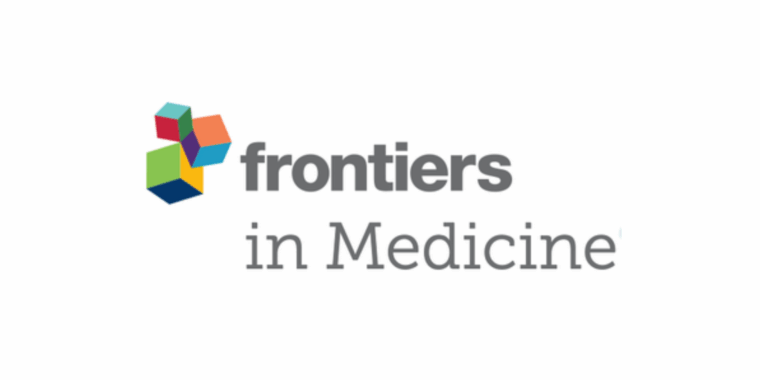
Call for Insights & Stories: Frontiers Opens Special Collection for AHC Partners
The Africa Health Collaborative (AHC) is pleased to share an exciting opportunity for all AHC institutional partners to share original research, reviews, case studies, policy briefs, perspectives, and reflective pieces in a new article collection titled “United in Partnership: Academic Collaborations for Primary Health Care Transformation” by Frontiers in Medicine. This special collection is being […]
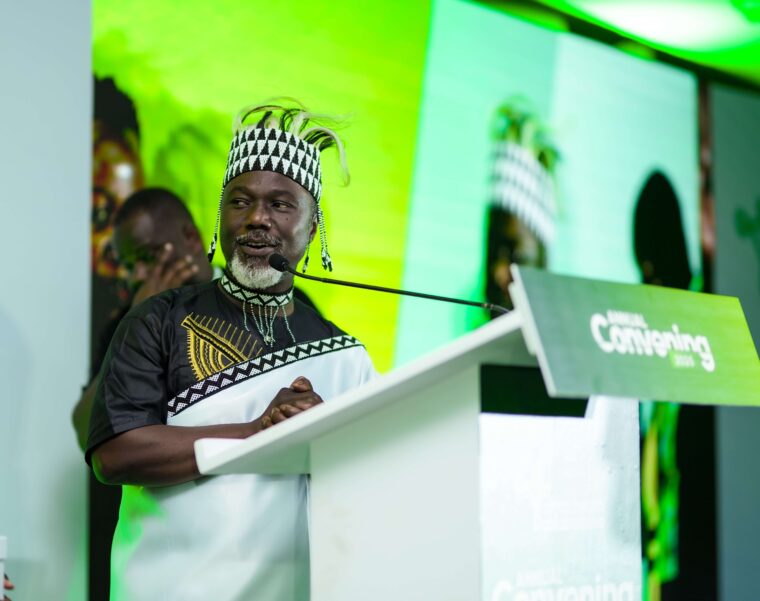
A New Chapter of Collaboration: AHC Welcomes Prof. Joachim Osur as Executive Steering Committee Chair
The Africa Health Collaborative (AHC) has announced Prof. Joachim Osur, Vice Chancellor of Amref International University, as the new Chair of the Executive Steering Committee (ESC). The symbolic handover took place during the closing ceremony of the 2025 AHC Convening in Rwanda, held in October 2025. This marks a significant leadership transition from Prof. Nhlanhla […]
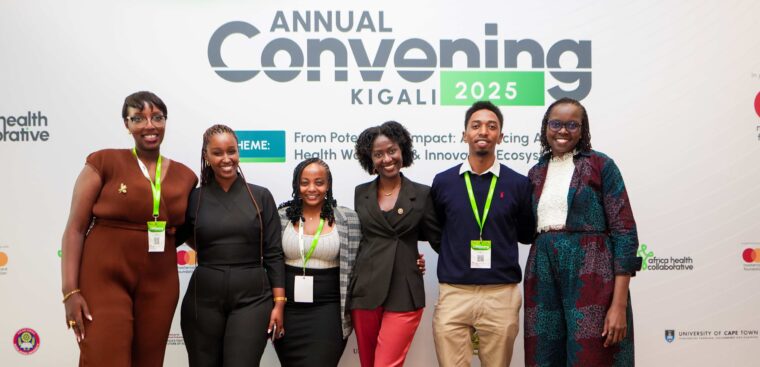
Africa Health Collaborative 2025: Driving Transformative Change in Primary Healthcare Future
Last October, over 170 policymakers, health experts, academics, and youth innovators from 14 countries came together for the Africa Health Collaborative’s (AHC) 2025 Annual Convening, hosted by the African Leadership University (ALU) in Kigali, Rwanda.

Engineering Dignity: Designing Low-Cost Prosthetics in the University of Cape Town’s MedTech Lab
Read about how Jemila Abdulai’s internship at UCT’s MedTech Lab strengthened her commitment to human-centered engineering, demonstrating how affordable innovations like the ADL Arm can expand access, restore dignity, and transform lives in underserved communities.

Graduate Scholarship Opportunities at the Kwame Nkrumah University of Science and Technology
Apply for graduate (MPh, MSc, MPhil, PhD) scholarships at the Kwame Nkrumah University of Science and Technology.
